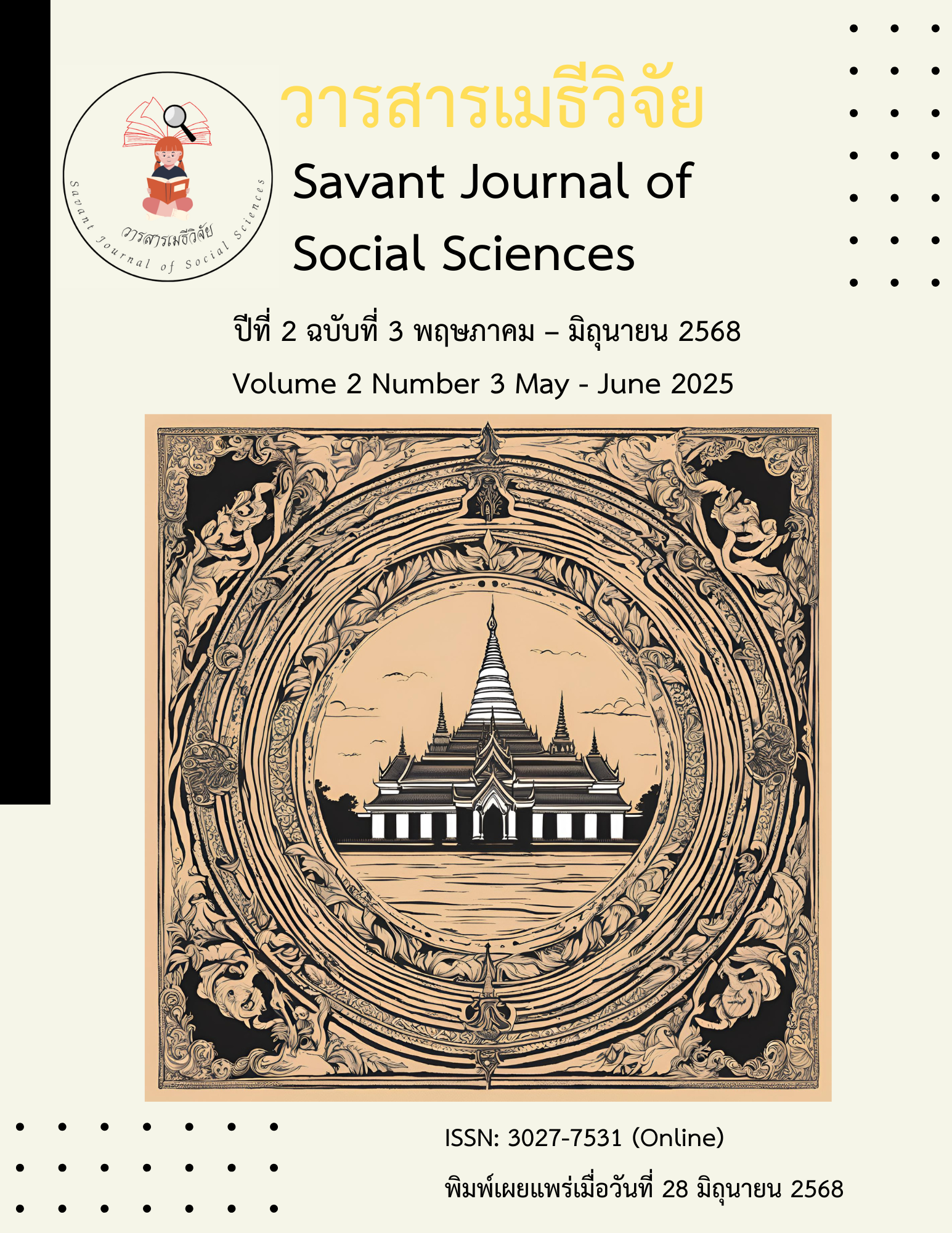Political-Economic Dynamics and the Evolution of Thai Political Parties: From the 1932 Revolution to the Post-2017 Constitutional Era
Abstract
This article aims to analyze the political-economic dynamics of Thailand from the aftermath of the 1932 revolution to the post-2017 constitutional era. It seeks to explain the structural relationship between political-economic contexts and the transformation of Thai political parties across different historical periods. The analysis is grounded in a Marxist political economy framework and a critical institutionalist perspective, both of which illuminate the structural forces and institutional mechanisms that shape the development of political parties. The study finds that structural changes in the Thai economy—particularly the evolving roles of dominant capitalist groups in each period—have significantly influenced party formation, internal mechanisms, and adaptive strategies in response to shifting political-economic conditions. Moreover, political party laws, electoral systems, and independent political bodies have functioned as institutional mechanisms that both facilitate and constrain political parties' access to power, especially new parties seeking to compete in the political arena. This study highlights the complex interplay between economic structures, state power, and party development, demonstrating that political parties do not operate in a vacuum but are continually shaped by pressures and constraints imposed by capitalist interests and state apparatuses. It thereby underscores the structural nature of Thai politics and the evolving dynamics that inform party politics in different socio-political contexts.
References
ไชยรัตน์ เจริญสินโอฬาร. (2557). รัฐศาสตร์แนววิพากษ์. (พิมพ์ครั้งที่ 4). สำนักพิมพ์ มหาวิทยาลัยธรรมศาสตร์.
นรนิติ เศรษฐบุตร. (2542). รัฐศาสตร์-การเมือง รวมบทความวิชาการทางรัฐศาสตร์ พ.ศ. 2516-2525. สำนักพิมพ์วิภาษา.
บุญศักดิ์ แสงระวีและแวว ศศิธร. (2551). วิวัฒนาการของลัทธิมาร์กซ. สำนักพิมพ์สุขภาพใจ.
ปวร เกียรติยุทธชาติ. (2565). ตลาดการเมืองภายใต้รัฐธรรมนูญแห่งราชอาณาจักรไทย พุทธศักราช 2460 : ตลาดนโยบายในคราบตลาดอุดมการณ์. วารสารรัฐศาสตร์นิเทศ, 8(1), 41-106.
ผาสุก พงษ์ไพจิตร และคริส เบเคอร์. (2546). เศรษฐกิจการเมืองไทยสมัยกรุงเทพฯ. (พิมพ์ครั้งที่ 3). สำนักพิมพ์ซิลค์เวอร์ม.
ยุทธศาสตร์ หน่อแก้ว. (2564). แนวทางประชานิยม : ภาพสะท้อนแนวคิดทางการเมืองเชิงโครงสร้างชน ชั้นในสังคมไทย. วารสารมนุษยศาสตร์และสังคมศาสตร์ วไลยอลงกรในพระบรมราชูปถัมภ์, 16(2), 15-30.
วีระ สมบูรณ์. (2561). ทฤษฎีการเมืองกับความสัมพันธ์ระหว่างประเทศ. กรุงเทพฯ: การพิมพ์.
วิทยากร เชียงกูล. (2558). ทำไมควรอ่านคาร์ล มาร์กซ์. สำนักพิมพ์แสงดาว.
สุรพงษ์ ชัยนาม. (2553). มาร์กซ์และสังคมนิยม. สำนักพิมพ์ศยาม.
สมชาย ภคภาสน์วิวัฒน์. (2547). การพัฒนาเศรษฐกิจและการเมืองไทย. (พิมพ์ครั้งที่ 6). โครงการจัดพิมพ์คบไฟ.
อเนก สุขดี. (2563). ผลกระทบของบทบัญญัติในกฎหมายพรรคการเมืองฉบับป พ.ศ. 2560 ตอการดําเนินกิจกรรมทางการเมืองของพรรคการเมืองไทย. ในการประชุมวิชาการระดับชาติ สาขามนุษยศาสตรและสังคมศาสตร ครั้งที่ 4 ประจําป พ.ศ. 2563 (หน้า 294-305). นครปฐม: มหาวิทยาลัยมหิดล.
เอนก เหล่าธรรมทัศน์. (2549). ทักษิณา-ประชานิยม. สำนักพิมพ์มติชน.
Clift, B. (2021). Comparative Political Economy: States, Markets and Global Capitalism (2nd ed.). Red Globe Press.
Connors, M. K. (2007). Democracy and National Identity in Thailand. Copenhagen: NIAS Press.
Hall, P. A., & Taylor, R. C. R. (1996). Political science and the three new institutionalisms. Political Studies, 44(5), 936-957.
Kuhonta, E. M. (2011). The institutional imperative: The politics of equitable development in Southeast Asia. Stanford University Press.
Marx, K., & Engels, F. (1848). The Communist Manifesto. London: Penguin Classics.
March, J. G., & Olsen, J. P. (1989). Rediscovering Institutions: The Organizational Basis of Politics. New York: Free Press.
March, J. G., & Olsen, J. P. (1989). Rediscovering Institutions: The Organizational Basis of Politics. New York: Free Press.
DiMaggio, P. J., & Powell, W. W. (1991). “Introduction.” In W. W. Powell & P. J. DiMaggio (Eds.), The New Institutionalism in Organizational Analysis (pp.1–38). Chicago: University of Chicago Press.
Pasuk, P. (1996). The Thai economy in the mid-1990s. Southeast Asian Affairs, 1996, 369–381. ISEAS - Yusof Ishak Institute.
Pasuk, P., & Baker, C. (2008). Thai capital after the 1997 crisis. Silkworm Books.
Shepsle, K. A. (2006). Rational choice institutionalism. In R. A. W. Rhodes, S. A. Binder, & B. A. Rockman (Eds.), The Oxford Handbook of Political Institutions (pp. 23-38).
Oxford University Press






